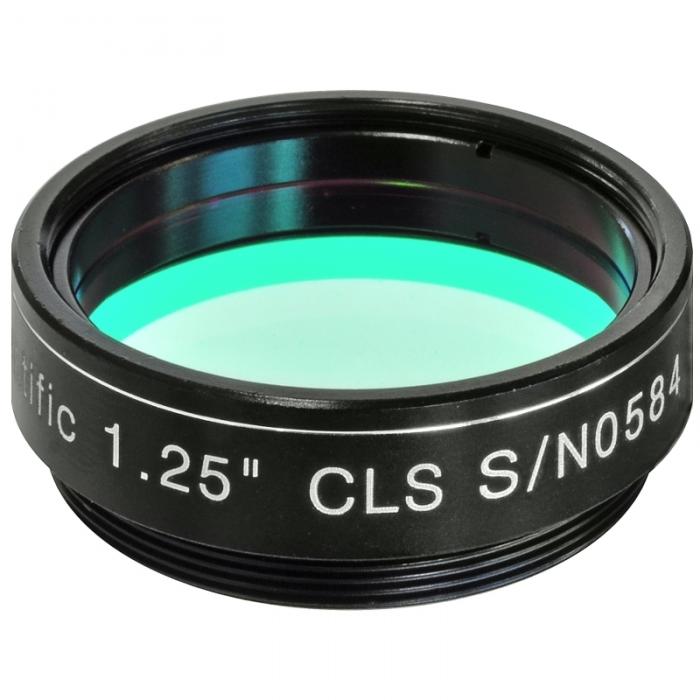
With this filter the observation of deep sky objects is made much easier by filtering the interfering light
- High-quality EXPLORE SCIENTIFIC CLS filter
- Allows observation of low-light deep sky objects
- Individual test report of the EXPLORE SCIENTIFIC filter is included

Artificial Intelligence assistant
This is the beta version of our new assistant chat, capable of answering both standard and advanced questions about product and store operations.
Or ask about:
What are the features? Is this in stock?
Discover related products
Discover related products
Besides air turbulence, the brightening of the night sky is the biggest obstacle to observing faint objects beyond the solar system. Street lamps and other artificial lighting mean that the sky in human settlements is no longer really black. This affects the contrast and thus the perception of deep-sky objects. Depending on the type of celestial object, however, part of disturbing artificial light can be filtered out, making it easier to observe fainter targets.
The EXPLORE SCIENTIFIC CITY LIGHT SUPRESSION - or CLS - filter uses the fact that the artificial lighting is not evenly distributed over the entire spectrum. These colours - in the case of the EXPLORE SCIENTIFIC CLS nebula filter, above all the typical colours of mercury and high-pressure lamps, used in street lighting - are suppressed, but the emissions of deep-sky objects are allowed through. With a slightly brightened sky, some relatively bright deep-sky objects are practically invisible with a telescope, for example the large galaxy M101. Using this filter makes observation much easier. A must have for any visual amateur astronomer. The EXPLORE SCIENTIFIC CLS can also be used as a useful photographic filter - helping to improve the quality of your telescopic deep sky photos.
The EXPLORE SCIENTIFIC nebula filters are delivered with an individual test report - so you can be sure of receiving high-quality filters.
SPECIFICATIONS:
- eliminates disturbing light - e.g. from street lighting
- enables observation of faint deep sky objects
WHAT'S INCLUDED:
- 1x CLS filter
| Type of Product | Telescope acsessories |
 Google
Google









